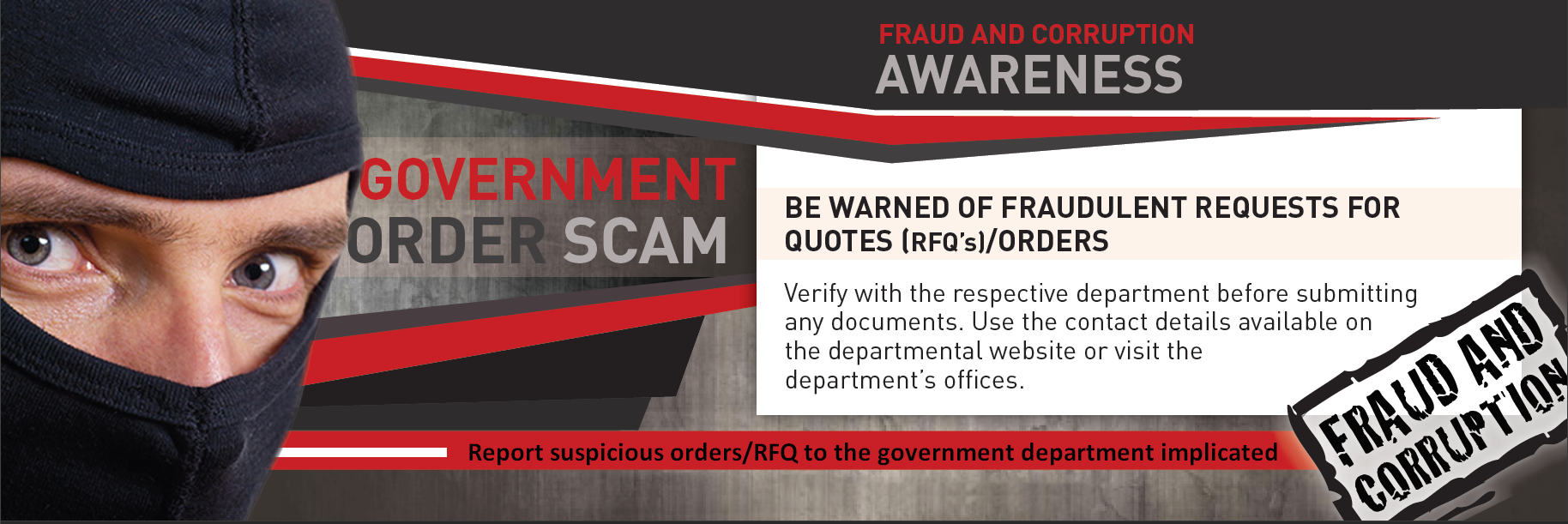
Over the past four years a number of companies have lost tens of thousands of Rands due to alleged fraudulent request for quotations (RFQS) and orders, supposedly from government departments.
The fraudsters would send a fictitious RFQ from what would seem to be a governmental email address, use a fake RFQ form with a logo and contact details of the contact person. These requests are usually urgent and the whole process is concluded within a short period of time. During the process the “SCM officials” will be in contact with the unsuspecting service provider until the goods are delivered either outside the building or at an agreed address.
How does it work?
Fraudsters make use of department letterheads to send out fake tenders to businesses. They then request these businesses to supply them with equipment and goods. Sometimes, business owners are even asked to pay a deposit to secure their tender. At first glance, everything looks above board. But upon closer inspection, you soon realise that all isn’t as it seems.
The department and Cart Blanche have provided guidelines on how to spot a fake tender:
§ While it’s difficult to determine whether the letter from the department is indeed authentic, there are other smaller details that could help you avoid a very costly mistake.
§ Compare the names and contact numbers as shown on the letter to that published on the relevant Department’s website. If they’re not the same, be careful. If they are the same give them a call to ensure they represent who they say they do.
§ Do a simple online search of the company name as shown on the letter. If there is a website, look up the address and call the company to confirm they do exist.
§ The banking details provided with the tender document belong to a private individual and are not in the company name.
§ Remember that Government will never ask you to pay any money to secure a tender.
§ Check the email address of the sender. If the address contains a .org it is not from the government. Look out forimpersonation addresses like the ones below:
– doh@treasury-gov.org.za
– ghd@gautenghealth-gov.org.za
– health@mphumalang-gov.org.za
– NDOH@nationalhealth-gov.org.za
§ Check the contact number provided on the tender letter. Government warns that although the numbers look valid, they are often not even connected to any property. Give the number a call to check.
§ Look for the purchase or order number. “Government will never send an email asking you to supply equipment and goods without a purchase or order number,” Government warns.
While Government is working closely with authorities to thwart these fraudsters, it still remains the responsibility of the business owner to ensure the tender is legal. Should you fall victim to a tender scam, you cannot hold the relevant Department liable for your losses.
If you do receive a tender request, and you are still unsure about its legitimacy, it’s always wise to give the mentioned Department a call (use the contact number as listed on the Department’s website) to verify.
If you know of any fraudulent tender activities please be report to the Tender Fraud hotline 0800 701 701. Confidentiality is guaranteed.
